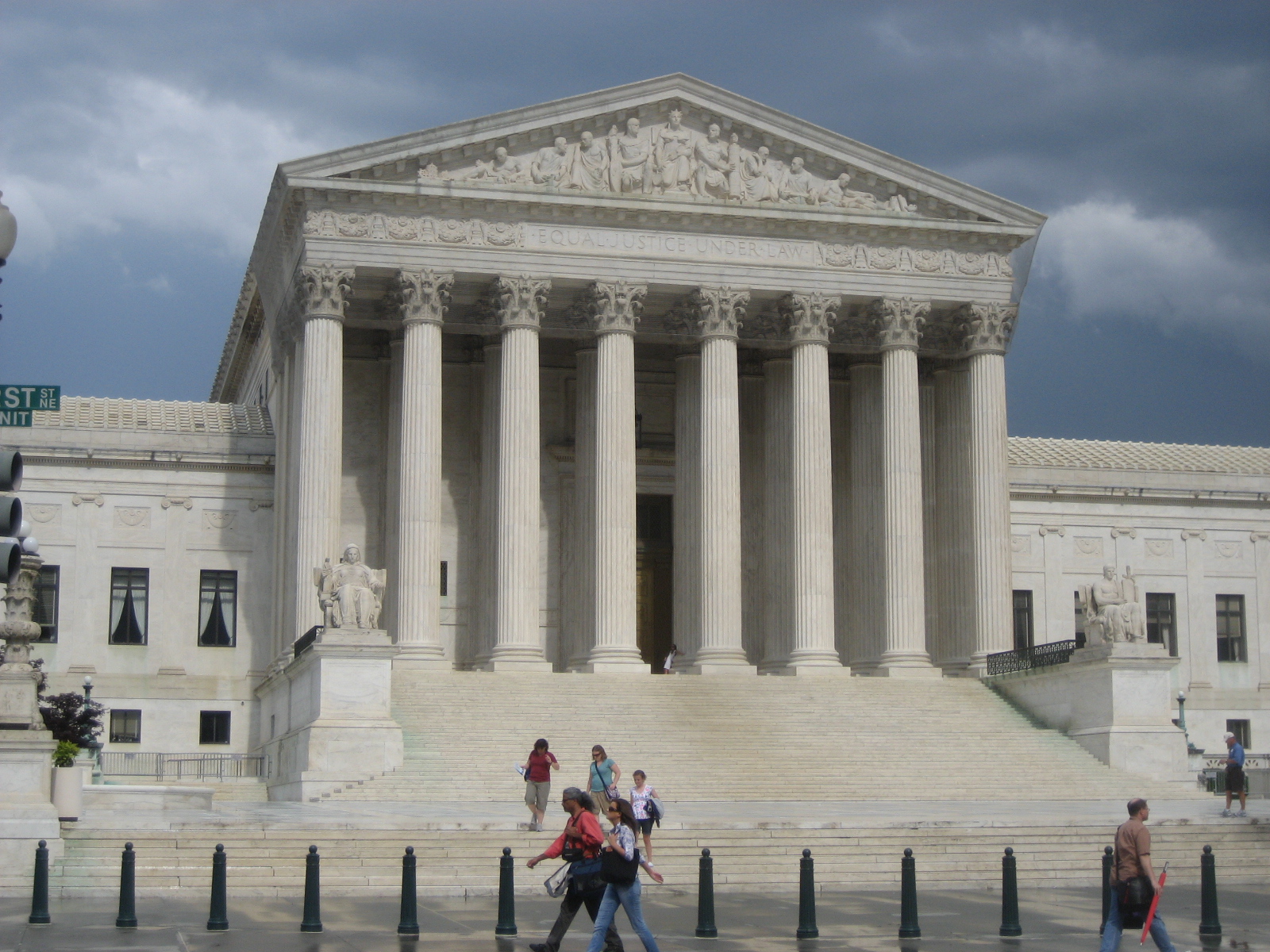Support for increasing the size of the United States Supreme Court from nine to thirteen members is slowly increasing in Washington, the Northwest Progressive Institute’s most recent statewide survey of likely voters has found.
52% of 773 likely 2024 general election voters surveyed by Public Policy Polling earlier this month said they supported increasing the size of the Court to make it a more diverse and representative body, while 40% were opposed and 8% were not sure. The percentage who were supportive when we last asked this question in 2022 was a bare majority of fifty percent, while opposition was 41%.
That means there’s been a net change in support/opposition of +3% in just a year and a quarter, probably fueled by the current Court’s swiftly declining legitimacy. For instance, the Supreme Court handed down its awful Dobbs decision ending Roe v. Wade only a few months after we first asked this Court expansion question, which had huge electoral repercussions in the midterms.
This year, the Roberts Court is also ending its term with a big bang, issuing a series of bad 6–3 decisions against affirmative action, LGBTQ+ rights, and student loan forgiveness, all in the span of twenty-four hours, and all against the backdrop of a massive ethics scandal exposed by the reporting of outlets like ProPublica, which have been pulling back the curtain on the corrupt behavior of Roberts’ right wing colleagues like Samuel Alito and Clarence Thomas.
Roberts is aware that he is presiding over an institution that is losing respect and credibility, and seems to be fearful that the most recent dissents authored by the Court’s liberal bloc — which now consists of Sonia Sotomayor, Elena Kagan, and Ketanji Brown Jackson — will reverberate across the country.
“It has become a disturbing feature of some recent opinions to criticize the decisions with which they disagree as going beyond the proper role of the judiciary,” Roberts fretted. “We do not mistake this plainly heartfelt disagreement for disparagement. It is important that the public not be misled either. Any such misperception would be harmful to this institution and our country.”
Sadly, that ship has already sailed. If Roberts wants to know who to blame for the Court’s grave crisis of legitimacy, he can summon his right wing colleagues to his side and look in a mirror. This is a Court that does not look like America and is not representative of America. It’s loaded with a supermajority of narrowly-confirmed jurists who subscribe to extreme right wing ideals and are very comfortable with trying to impose those ideals on everyone else using warped interpretations of our country’s more than two hundred year-old plan of government.
It would take a constitutional amendment to impose term limits on Supreme Court justices or implement a long list of other proposed reforms. However, expansion of the Court can be done by majority vote of Congress and a presidential signature. Really and truly — that’s all it takes! Expanding the United States Supreme Court would allow for the appointment of several new justices who could bring balance and diversity to the institution. And reinforcements could also help with the Court’s workload. Its size has changed before, and there’s no good reason it can’t again. There’s nothing particularly special about the number nine.
Here are the details of where Washingtonians now stand on this question:
QUESTION: Article III of the United States Constitution gives Congress the responsibility of determining the size of the United States Supreme Court and the establishment of all lower courts. Do you strongly support, somewhat support, somewhat oppose or strongly oppose the passage of legislation to expand the size of the United States Supreme Court from nine members to thirteen members to make it a more diverse and representative body?
ANSWERS:
- Support: 52%
- Strongly support: 38%
- Somewhat support: 14%
- Oppose: 40%
- Somewhat oppose: 7%
- Strongly oppose: 33%
- Not sure: 8%
Our survey of 773 likely 2024 Washington State voters was in the field from Wednesday, June 7th through Thursday, June 8th, 2023.
The poll utilizes a blended methodology, with automated phone calls to landlines (41%) and online answers from cell phone only respondents (59%).
It was conducted by Public Policy Polling (PPP) for the Northwest Progressive Institute, and has a margin of error of +/- 3.5% at the 95% confidence interval.
NPI and PPP have worked together for a decade and have a track record of excellence, as detailed in this 2022 electoral polling recap and this 2020 one.
With Republicans currently in control of the House of Representatives and two Democratic senators opposed to expanding the Court or ending the filibuster in the Senate, there is no prospect of Court expansion passing this Congress.
President Biden has also not been supportive, telling MSNBC’s Nicole Wallace this week: “I think if we start the process of trying to expand the court, we’re going to politicize it maybe forever in a way that is not healthy.”
It’s too late for that, though. This Court is already an unhealthy, “politicized” institution. It has become an unaccountable, partisan body thanks to the toxic presence of people like Clarence Thomas. Biden, incidentally, was Senate Judiciary Chair when Thomas was confirmed. Democrats could have blocked Thomas from getting a floor vote, thereby preventing his confirmation, but they didn’t.
Three decades later, here we are.
President Biden must reconsider his position for the good of the country.
If Americans elect a Democratic trifecta next year, U.S. Supreme Court expansion can and should be something the Democratic Party gets done. It is the only remedy at hand that can truly fix the Court, and it’s growing in popularity.


I remember learning about FDR’s attempt to expand the court and history, from what I remember, did not look positively on that.